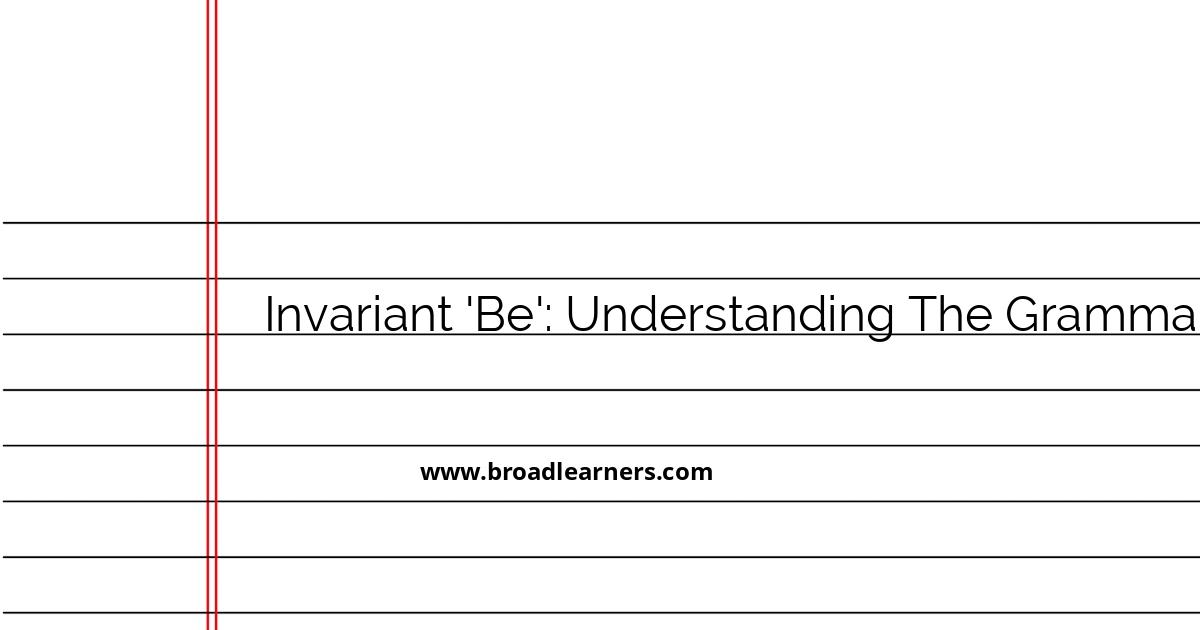The invariant 'be' is a grammatical feature in English that often puzzles learners and even native speakers. It is part of the nonstandard English varieties where the verb 'be' does not change its form regardless of the subject or tense. This feature is commonly found in African American Vernacular English (AAVE) and some Creole languages. Here, we will delve into the concept and usage of invariant 'be', ensuring clarity for beginners:
Grammar Explanation of the Invariant 'Be'
- Definition:
- The invariant 'be' refers to the use of 'be' that remains in its base form and does not conjugate according to tense, aspect, or subject-verb agreement. Unlike standard English, where 'be' changes to 'am', 'is', 'are', 'were', etc., invariant 'be' stays unchanged.
- Function:
- The invariant 'be' typically indicates habitual, regular, or repeated actions or states. It emphasizes a continuous state rather than a one-time occurrence.
Understanding Usage with Examples
Let's consider some examples to illustrate the usage of invariant 'be':
- He be working late.
- Explanation: This sentence implies that 'he' regularly works late, emphasizing a habitual action.
- Standard English equivalent: He usually works late.
- They be playing in the park.
- Explanation: Indicates that 'they' often play in the park. The action is not isolated to just one instance.
- Standard English equivalent: They often play in the park.
- She be cooking dinner on weekends.
- Explanation: This suggests that 'she' regularly cooks dinner on weekends; it's a repeated action.
- Standard English equivalent: She cooks dinner on weekends.
Key Points for Beginners
For those new to this concept, it's important to understand:
- Contextual Usage: The invariant 'be' is not used in standard English but is prominent in certain dialects like AAVE. Recognizing its cultural and linguistic context is essential.
- Habitual Aspect: The invariant 'be' signifies actions or states that are habitual or continuous, unlike its standard counterparts which focus more on specific instances.
- Dialectal Variation: Grammar can vary significantly between dialects, and the invariant 'be' is a great example of such variation that enriches the English language.
Conclusion
Understanding the invariant 'be' allows for a broader appreciation of English's diversity and complexity. While it's not used in standard English, acknowledging and respecting this variation enriches one's grasp of linguistic nuances. By recognizing its habitual connotation and contextual use, learners can appreciate this intriguing grammatical feature's role in dialectal richness.

Did I miss anything? Respond below